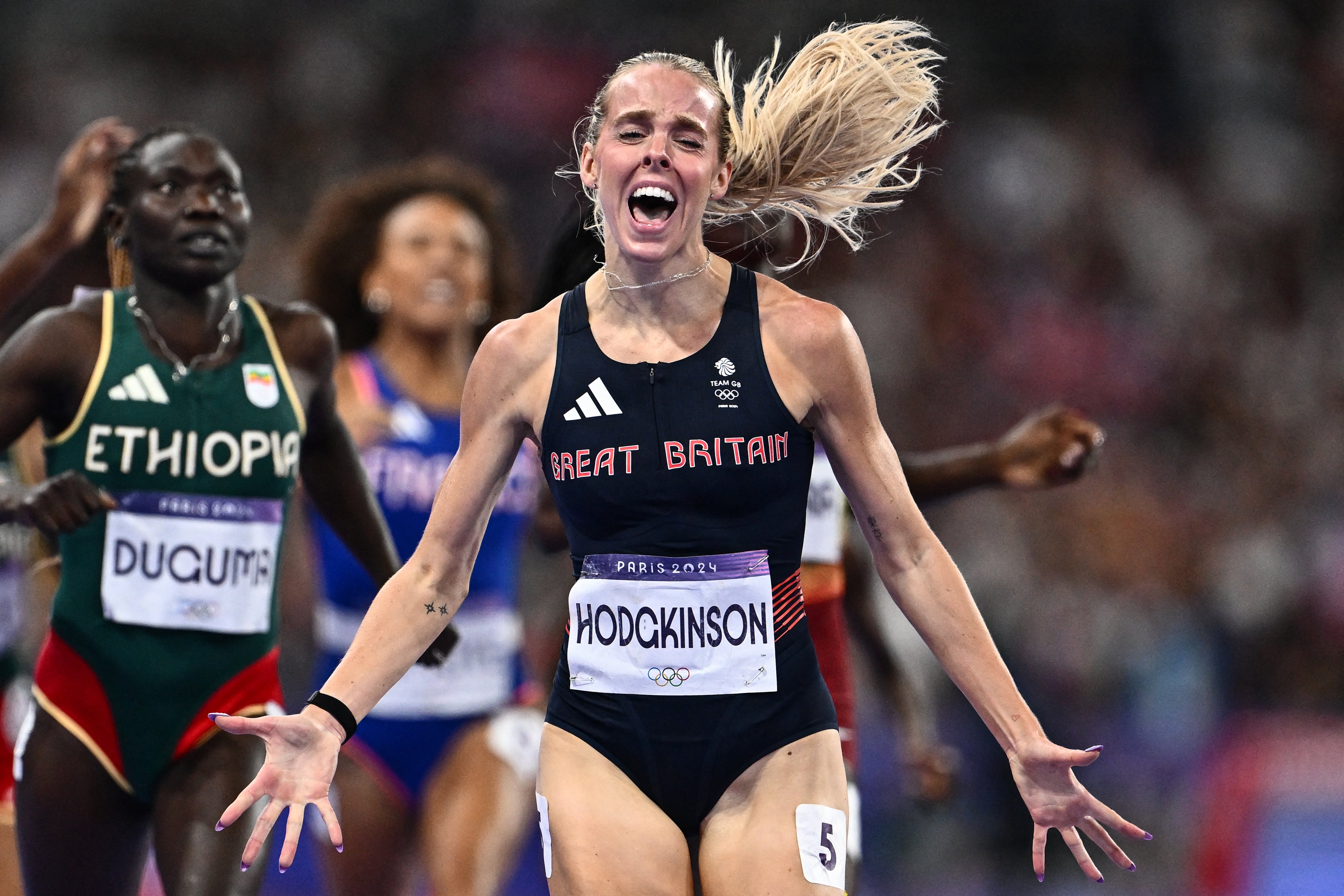Thank goodness the Olympics is over – I can’t take any more brilliance
The athletes have given it their all, and have left Will Gore feeling thoroughly deficient


Well, it’s almost over. Team GB has done its country proud, winning more overall medals at this year’s Olympics than at any Games since 1984. And, despite the limited coverage on the BBC, I’ve thoroughly enjoyed tuning in over the last fortnight.
However, with the Games having now drawn to a close, I can’t help breathing a major sigh of relief.
Much as I love it, the Olympics always makes me feel inadequate. All those bulging muscles and toned physiques throw into sharp relief the shortcomings of us mere mortals (or should that be podgy relief?). Most of the heroic participants rub it in further by having plenty of hair, perfect teeth and, above all, oodles of youth. At least our skateboarder, Andy MacDonald, had the decency to be 51.
So, there they all are, looking like gods and goddesses, and then they go and bash out a few thousand metres in the time it takes me to walk downstairs and make a cuppa. Or they do things which appear to defy all physical logic, as well as any sensible advice: the pole vault, for instance, or anything involving a high diving board or pommel horse.
If you’re a generally sporty person, you can pop along to a League Two football match and take some comfort from what you see. You know in your heart that you’re not good enough to slot into the MK Dons forward line, or do a job at right-back for Doncaster Rovers; but then again, you can sort of kid yourself that what you’re watching isn’t a million miles away from what you could do in your Sunday league team. Or, at the very least, you can understand how the professionals do it.
That rarely feels the case with the Olympics, where the talent and the drive on display seem almost otherworldly. Indeed, that drive – that sense of absolute purpose – is as remarkable as any innate ability on show. For many Olympians, the furrow they plough is a lonely one and not particularly well-remunerated. Even those who actually make it into their respective finals gain only fleeting public recognition: it will probably be only the gold medal winners who we remember in the long term.
Perhaps it’s that knowledge which keeps Olympians so humble. But that only makes them even harder to take. The top professional footballers might have incredible talent but then they turn out to be total prima donnas, wearing ludicrous, diamond-encrusted watches, so you can at least hold that against them. When you look at Keely Hodgkinson or Tony Roberts, all you see is talent, grit and absolutely no hint of them being anything but delightful. How do they do it?!
As if all this were not enough, we’re also supposed to be inspired by the Olympics to take up new sports, or to double down on our determination to follow in the footsteps of our heroes. And sure enough, just as Hodgkinson talked of being inspired by watching Jessica Ennis-Hill in 2012, no doubt there will be girls and boys who in a decade or so will be clutching their own gold medals and telling Clare Balding how they were spurred on by Hodgkinson’s stunning 800m victory in 2024.
That’s all very well, but spare a thought for all the kids who will spend the next couple of weeks flirting with the most unlikely ambitions. Someone, somewhere will have already broken their collar bone trying to Fosbury flop over their back fence, or smashed their neighbour’s greenhouse with a misplaced discus/hub cap.
Regrettably, my son appears to have been particularly taken with the swimming events and I spent several evenings last week at our local pool as he endeavoured to smash his PB in the 25-metre freestyle. I duly timed one splashy length after another but after an apparent breakthrough, when he scored an impressive 36-second split, he then lost his breathing pattern and the ability to swim in a straight line. The only similarity between him and Adam Peaty is that he vaguely resembles a man swimming in a bog.
Don’t worry, I’ll keep encouraging him, and when he wins the Olympic 50m butterfly in 2036, I’ll eat my words. For now, however, with thanks to Paris and to every incredible participant, I’m giving the Olympics a rest – and slowly starting to rebuild my self-esteem.



Join our commenting forum
Join thought-provoking conversations, follow other Independent readers and see their replies
Comments